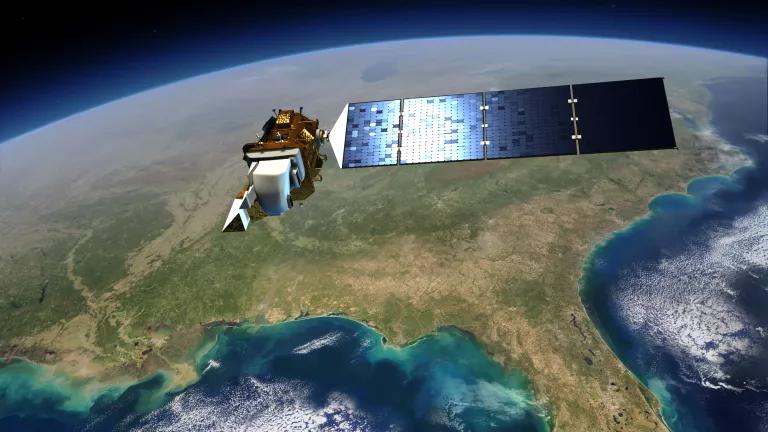More Evidence! No, Wait...Less Evidence!
Climate change deniers in Congress complain about a lack of data while trying to defund NASA’s climate change research.

The House of Representatives’ Science, Space, and Technology Committee wants NASA to stop talking about climate change. The committee’s recently proposed budget would cut the agency’s earth science funding by $300 million to $500 million per year. That’s money the agency uses to improve climate models, maintain observation satellites, predict the scale and path of extreme storms, monitor the loss of sea ice, and track wildfires. For more than 30 years, NASA has led government research on climate change.
Either this is the first intentionally ironic budget in the House’s history, or the committee members have alarmingly short memories. According to these very same politicians, the current problems with climate change science are inadequate evidence and a lack of certainty. Here is a sampling of comments from some of them (all emphasis mine):
- Chairman Lamar Smith (R-TX): “Contrary to the claims of those who want to strictly regulate carbon dioxide emissions and increase the cost of energy for all Americans, there is a great amount of uncertainty associated with climate science.”
- Representative James Sensenbrenner (R-WI): “I think that the science is inconclusive on this.”
- Representative Mo Brooks (R-AL): “I’m approaching the issue with a healthy degree of skepticism. If the evidence is there to prove it, then so be it.”
- Representative Thomas Massie (R-KY): “I would challenge [President Obama] to show us the linkage—the undeniable linkage—between droughts and the change of weather, and some kind of human activity.”
Please pardon my confusion. If these distinguished congressmen are so open to new evidence, so eager to have the climate change “debate” settled by solid data, why do they want to cut funding to the agency most responsible for developing the science? Wait a minute…do you think, just maybe, they don’t want NASA collecting any more evidence, because it might further undermine their “uncertainty” argument and make their science denial even harder to accept? The shamelessness of climate change deniers still surprises me sometimes, even after all these years of lying, disingenuousness, and misdirection.
The House committee took it a step further last week. In his press release announcing the budget, Chairman Smith trumpeted the support of the Planetary Society, a prominent advocate for space exploration. He even went out of his way to note that Bill Nye, one of the world’s most vocal campaigners for climate change action, leads the Planetary Society. How could Nye’s organization support a bill that guts climate change science?
It couldn’t. In fact, the Planetary Society only supports one aspect of the budget: the part relating to space exploration.
“It’s clear my letter was only talking about space exploration,” said Casey Dreier, the Planetary Society’s director of advocacy. “It was clearly too subtle, and we’ve had to aggressively clarify our position.”
Subtlety is generally a mistake in politics. In a blog post published the day after Smith’s press release, Dreier stated unambiguously, “Obviously, the cuts to Earth Science make this a hard bill to support, therefore The Planetary Society cannot support the full bill as written at this early stage.”
Of course, Smith knew Bill Nye and his organization would never support a bill aimed at defunding climate change research. The depressing (although not particularly surprising) reality is that Smith took the Planetary Society’s letter out of context and exploited it.
If this is to be the state of our political discourse, maybe we should pour all of NASA’s money into planetary exploration. Reasonable people might need a place to live.
This article was originally published on onEarth, which is no longer in publication. onEarth was founded in 1979 as the Amicus Journal, an independent magazine of thought and opinion on the environment. All opinions expressed are those of the authors and do not necessarily reflect the policies or positions of NRDC. This article is available for online republication by news media outlets or nonprofits under these conditions: The writer(s) must be credited with a byline; you must note prominently that the article was originally published by NRDC.org and link to the original; the article cannot be edited (beyond simple things such grammar); you can’t resell the article in any form or grant republishing rights to other outlets; you can’t republish our material wholesale or automatically—you need to select articles individually; you can’t republish the photos or graphics on our site without specific permission; you should drop us a note to let us know when you’ve used one of our articles.
When Customers and Investors Demand Corporate Sustainability
It’s Time to Talk about Climate Anxiety
How to Find Relief During Summer Heat Waves in the City